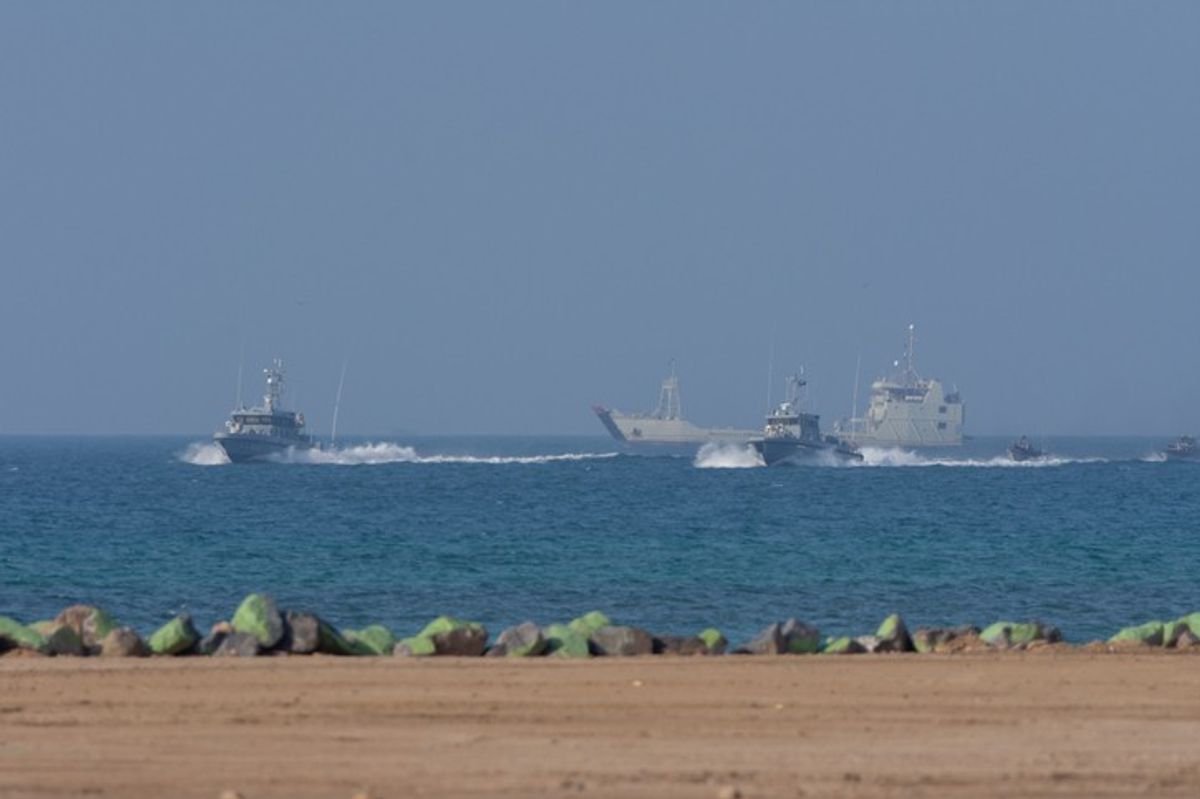Five years after the Arab Spring, enough dust has settled to allow for a clear analysis of U.S. policy in Libya at the time of the Libyan revolution. The United States, and the international community as a whole, made a number of major mistakes as the revolution unfolded in 2011, which contributed to the chaos that unfolded in the country. Now, as a new unity government works to cement its control, the West must internalize lessons from the past five years in order to help the country move forward.
The first and foremost mistake made by the United States in 2011 was the failure to immediately understand the interests of its main allies, namely the United Kingdom and France. On the surface, UK and French interest in the Libyan intervention appeared to be a humanitarian need to prevent the massacre of innocent protesters in Benghazi by forces loyal to long-time dictator Moammar al Gadhafi. In reality, as it became obvious in the weeks following the adoption of UN resolutions 1970 and 1973, the two European countries intervened in order to bring about a regime change by eliminating Gadhafi and substituting his regime with one more sympathetic to them. Failing to understand this from the beginning prevented the United States from attempting to negotiate a peaceful solution to the crisis between the regime and the rebels, who were, at that point, still a largely unknown entity. The debate about whether the regime was willing to negotiate with the insurgents can go on forever, but the fact is that the intervening Western countries made no attempt, and did not even show bare willingness, to initiate a dialogue.
Coupled with this mistake was the misreading of the revolt as a revolution by the people against a dictator and his mercenaries. In reality, Gadhafi’s rule enjoyed a relatively large consensus, albeit a minority consensus, within the country. A failure to recognize this fact prevented the United States and its allies from pushing the new Libyan elites to undertake a decisive process of national reconciliation and transitional justice before plunging into the divisive election process of 2012.
The United States’ second mistake was to improperly analyze the situation on the ground, namely, the legacy of 40 years of dictatorship, which had left Libyan society fragmented, as well as politically and culturally backward. The plain literacy rates show a high level of literacy among the population, but a deeper analysis reveals the poor quality of the education system and a resultant lack of critical thinking. Coupled with the isolation of the country – Libya attracted little tourism and enjoyed no opening to foreign influences of any kind – it is easy to assess how low the population’s level of sophistication was. The fact that Qaddafi ruled almost absolutely, applying a brutal and efficient divide-and-rule style of command, also contributed to the lack of political awareness and the absence of a political class sufficiently skilled to run the country after his fall.
Related to this is the United States’ third mistake, which was believing the self-appointed leaders of the rebels, who claimed they were capable of managing Libya’s transition to a pluralistic system. The United States trusted these leaders who said there was no need for foreign support on the ground during the post-Qaddafi period.
All these mistakes contributed to the final error of the United States and its allies, which was to offer Libya vague and rhetorical support, while asking Libyans themselves to present a coherent and feasible set of requests and needs to be met by the international community. The new Libyan ruling class immediately demonstrated a lack of capacity to act on the administrative and managerial level, which prevented them from elaborating a plan for international aid and support. This led to a de-facto decrease in foreign assistance and oversight, which contributed to the subsequent implosion of the state and the consequent fragmentation of political authority and military forces.
Still, the history of U.S. intervention in Libya’s post-revolution period is not characterized only by mistakes. One success has been steadfast U.S. support for the negotiation process led by the United Nations after the summer 2014 split of authority between the Salvation Government in Tripoli and an internationally legitimate one in Beyda. It is not clear yet whether Libya’s new Government of National Accord (GNA) born out of these negotiations will be fully successful, but it is clear that the GNA would not have seen the light of day if it weren’t for the United States and its allies’ strong and tenacious support.
Another success has been the United States’ unwavering refusal to allow any actor to trade Libyan oil outside of the legal framework set by the Libyan National Oil Company. The case of the North Korean ship, the Morning Glory, is a high point of this policy. In March 2014, U.S. Special Forces prevented the ship, which was carrying oil loaded at the eastern oil field of Es Sider under the control of anti-government militia leader Ibrahim Jadran, from docking at a foreign port and selling oil, and returned it to Tripoli. Should Jadran’s forces have been successful in selling the oil, the UN-negotiations would have been severely undermined, while rogue forces’ power and control over Libya’s resources would have been bolstered.
As of April 2016, Libya has a Government of National Accord led by Prime Minister Fayez Serraj. While its legal status is still undefined pending the approval of the House of Representatives (HOR) in Tobruk, the GNA has made its first important step by establishing itself in the capital of Tripoli. There should be no illusion that its efforts to establish order in the country and restart the economy will be easy. Nevertheless it is undeniable that a first step in the right direction has been made.
The prospects for the GNA reaching its objective of building a new Libyan State depend on many factors, primarily international and regional support. The international community, and the United States in particular, must learn from mistakes made in the aftermath of the 2011 revolution and be more pro-active in dealing with the Libyan ruling class. Instead of passively waiting for Libyans to produce a coherent, well-structured set of requests for foreign assistance to overcome immediate problems, the international community should embed experts and advisors among Libyan decision makers and the administrative bureaucracy in order to help assess the country’s deficiencies and areas of need. Such advisors would consequently be in a position to effectively advocate for support on behalf of Libya to its international supporters. Furthermore, the United States can play a prominent role in coordinating international aid in a way so as to avoid overlap, redundancy, and inefficiencies.
The success of the GNA’s effort is indeed dependent on the goodwill and the efforts of Libyans, but it also depends on the support of the international community. Therefore, it is crucial that the latter assess its past mistakes and plan accordingly in order to avoid repeating them.













